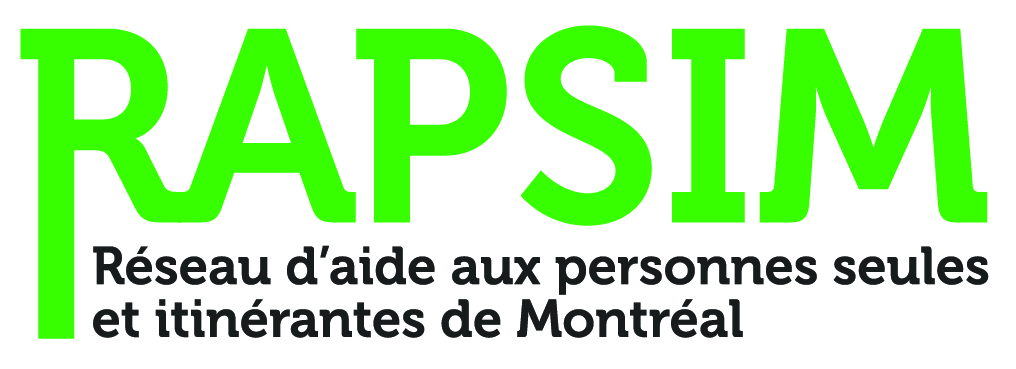
Montréal, June 3, 2020 – The Service de police de la Ville de Montréal (SPVM), under the directive of the comité de coordination des mesures d’urgence de Montréal (CCMU), continues to dismantle tents used by people living in situations of homelessness in downtown areas and in surrounding neighborhoods, including around Cabot Square, Émilie Gamelin park, Mont-Royal park and Morgan park in Hochelaga. The Réseau d’aide aux personnes seules et itinérantes de Montréal (RAPSIM), the Table des organismes communautaires montréalais de lutte contre le sida (TOMS) and the Montreal Indigenous Community NETWORK (The NETWORK) join their voices to denounce this decision that will only further stigmatize the most marginalized people in our society while threatening their health and safety.
“To have an approach that is rooted in respect for human rights is to allow people to have the choice to protect themselves, to use available resources when they choose to, and to respect their personal lives. The dismantling of these tents is an oppressive act, which only disconnects them from their natural networks, rendering them even more isolated and even more prone to overdoses and violence within our communities” deplored Martin Pagé, director of the organization Dopamine and board member of RAPSIM and TOMS.
Tolerance that is necessary
Tents allow people who cannot access regular shelter services or who prefer not to use these notably because these are not adapted to their specific needs, to find some stability, and to limit their movements, which are recommended public health guidelines.
“Normally, people living in situations of homelessness are systematically displaced and expelled from public spaces to hold many events and festivals. Considering how these events have been cancelled and how public spaces are now much less busy because of the pandemic, the least would be to allow them to shelter themselves in a harm reduction perspective” said Annie Savage, interim director of RAPSIM.
Furthermore, it is worth noting that neither the city nor the SPVM can force people to use shelters and temporary accommodations put in place for COVID-19. Considering that some temporary accomodations put in place to deal with the pandemic encourage people to remain within nearly 24 hours a day, it is obvious that this model cannot be suitable for everyone.
Impacts on Indigenous community members living in the streets
At the Montreal Indigenous Community NETWORK, we have received reports of cases where the dismantling of camps is accompanied by police brutality. In fact, not only has there been aggressive behaviour in the process of camp dismantlement, but material possessions held by our community members living in situations of homelessness have been thrown into the garbage.
The NETWORK calls on the general public as well as public authorities to consider the importance of temporary camps for our Indigenous community members, for both ceremonial and shelter reasons, notably with an objective to not disturb the grounds or surroundings. Moreover, for those community members living far away from home, this type of temporary shelter may allow them to feel more at home and comforted during this time.
More importantly, the current pandemic situation brings to light particularly stressful moments for our First Nations, Inuit, and Metis community members who have previously experienced trauma concerning how governments have dealt with past health crises. The intensification of police interventions associated with the temporary camps contributes to the reliving of these traumatic experiences. The right to shelter is a fundamental right, especially in the context of a pandemic in which the primary recommendation is to self-isolate.
“This reflects another missed opportunity for our government officials to address the well-being of the community by working in tandem with Indigenous community members. Street workers and Indigenous-serving organizations are ready to implement all necessary measures to facilitate the safety and security of the temporary camps, in collaboration with the City of Montreal, the CCMU, and the SPVM.”, reports Alexandre Huard, community organization supporter at the NETWORK.
Just like the City of Montreal, the NETWORK, TOMS, and RAPSIM are committed to leaving no one behind, to paraphrase and reiterate statements made on Monday[1] by Serge Lareault, Commissioner to people living in situations of homelessness.
About the organizations
The RAPSIM is a grouping of regional community organizations serving the homeless population. It has 110 members.
TOMS is a grouping of regional community organizations committed to combating HIV/AIDS.
The NETWORK supports the ecosystem of individuals and groups committed to improving the quality of life of First Nations, Inuit, and Metis communities living in the greater Montreal area.
– 30 –
Source :
Annie Savage – Interim Director, RAPSIM / annie.savage@rapsim.org
Marjolaine Pruvost – Coordinator, TOMS / coordo@toms-mtl.org
Alexandre Huard – Community Organization Support, NETWORK / alexandre@reseaumtlnetwork.com
[1] https://www.ledevoir.com/societe/579956/montreal-repit-de-courte-duree-pour-les-personnes-itinerantes
